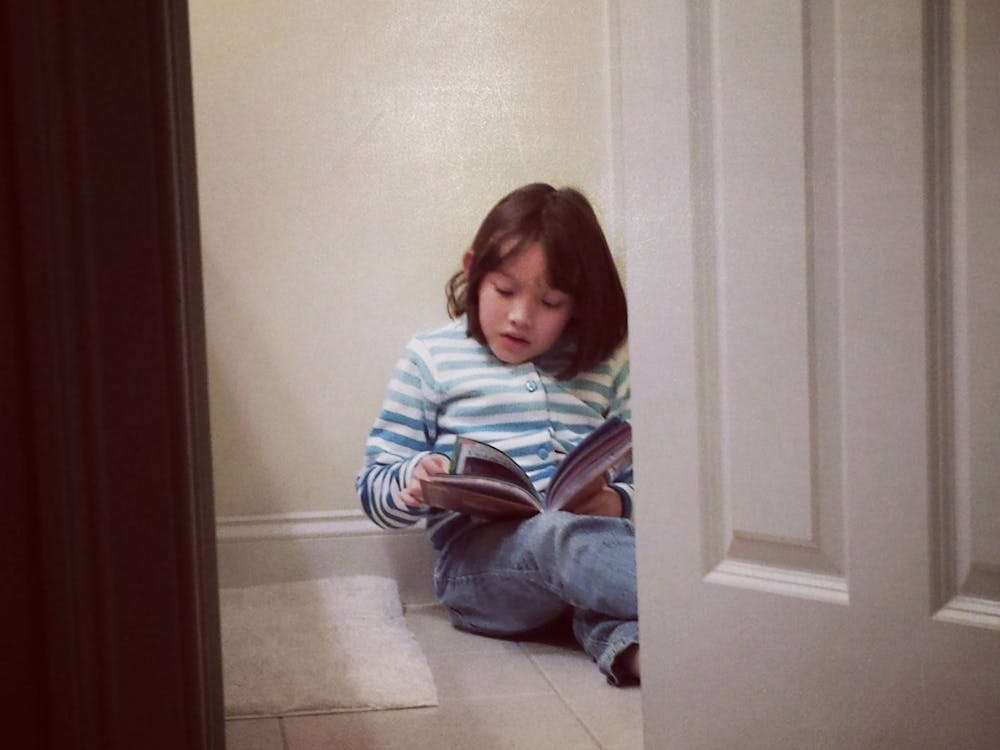
When we got to the topic of mortality, she asked whether I had read When Breath Becomes Air, and I said the usual “No, I haven’t, but I really should; I really wish I had more time to read.”
I forgot about the book for a while, having been consumed by my college applications at the time, and the next time I was reminded of it was when my mom told me she was going to read it this summer.
This surprised me, because my mom never reads any books, and I felt that she wanted to shame me into reading it as part of her campaign to find me new material on which to write this column. So I ended up reading the entire book on my flight back to Baltimore.
Dr. Paul Kalanithi’s story is a moving one. He had been nearing the end of his long neurosurgery residency when he was diagnosed with stage four lung cancer. Faced with the prospect of ending his career just as it was about to start and of leaving his pregnant wife behind, Kalanithi found himself struggling to answer questions on mortality and the purpose of life.
He had only posed those questions out of curiosity while studying English in college — questions he hadn’t expected to face while on the receiving end of the scalpel. The writing of When Breath Becomes Air was catalyzed by his realization that he wanted to leave something larger than himself behind.
My first impression was that out of all the medical books (for lack of a better term to describe the genre) that I’ve read, I don’t think any of the authors view and write about literature with the reverence Kalanithi has.
From using a quote from Samuel Beckett (“I can’t go on. I’ll go on.”) in order to guide his decisions regarding his future as a surgeon, to using lines from T. S. Eliot’s “The Waste Land” to convey the grimness of his cancer spreading, Kalanithi shows he has a clear understanding of the value of literature in making sense of his own life’s meaning and purpose.
Kalanithi’s book is divided into two sections. The first half details his time in medical school and his residency, and the second half details his reflections on neurosurgery and medicine and the beginnings of his forays into writing.
Early on in the timeline of the book, Kalanithi writes, “When there’s no place for the scalpel, words are the surgeon’s only tool.” Though initially intending this to mean that heartfelt communication with the patient is just as important as any skill a doctor might have in the operating or exam room, these words take on a new meaning once Kalanithi decides to discontinue his career as a neurosurgeon after undergoing several rounds of cancer treatment. Writing becomes the new focus of his life, displacing medicine as his way of making a meaningful contribution to the world.
As a doctor forced into becoming a patient himself, Kalanithi was exposed to both sides of medicine. He describes the incredible responsibility of being a physician with the following: “in taking up another’s cross, one must sometimes get crushed by the weight.”
He is put into the unique but undesirable position of knowing just how heavy his own cross is after he is diagnosed. Once Kalanithi absolves himself of responsibility for his own treatment and allows himself to just be the patient instead of the doctor, his sense of relief is a turning point in the book.
The most heart-wrenching part of Kalanithi’s decline is not that he has to lose the future he has carefully planned out for himself for years, but that the future he could have had with his wife and newborn daughter cannot be planned out at all.
In this legacy that he leaves behind, he highlights the courage required to persist and adapt despite facing insurmountable challenges. As his wife eloquently points out in the epilogue of the book, what we can learn from their ordeal is “the inexplicability of life and death, and the ability to cope, to find meaning despite this, because of this.”





